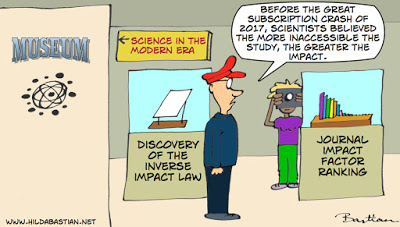I blogged about journal rankings a while ago. As I said back then, journal rankings matter in decisions about grants and academic promotions, and there are biases against heterodox journals. So even if there are many problems with those measures (read previous post), they are still relevant. The Review of Keynesian Economics (ROKE), founded by Tom Palley, Louis-Philippe Rochon (now at ROPE) and myself, has now an impact factor of 0.738 in last year’s Clarivate Report (Thomson-Reuters citation index, previously known as the Science-Social Science Citation Index, SSCI), up from 0.515 in the 2015 report.For comparison, well-established heterodox journals were somewhat below, with the Review of Radical Political Economics scoring 0.377 and 0.579 in the same reports, and the Journal of
Topics:
Matias Vernengo considers the following as important: Heterodox Economics, Impact factor, ROKE
This could be interesting, too:
Matias Vernengo writes What is heterodox economics?
Matias Vernengo writes Paul Davidson (1930-2024) and Post Keynesian Economics
Matias Vernengo writes New Clarivate Rankings
Matias Vernengo writes Paul Davidson (1930-2024)
I blogged about journal rankings a while ago. As I said back then, journal rankings matter in decisions about grants and academic promotions, and there are biases against heterodox journals. So even if there are many problems with those measures (read previous post), they are still relevant. The Review of Keynesian Economics (ROKE), founded by Tom Palley, Louis-Philippe Rochon (now at ROPE) and myself, has now an impact factor of 0.738 in last year’s Clarivate Report (Thomson-Reuters citation index, previously known as the Science-Social Science Citation Index, SSCI), up from 0.515 in the 2015 report.
For comparison, well-established heterodox journals were somewhat below, with the Review of Radical Political Economics scoring 0.377 and 0.579 in the same reports, and the Journal of Economic Issues scoring 0.573 and 0.580. The Cambridge Economic Journal, and Metroeconomica also improved and went from 1.311 to 2.070, and from 0.984 to 1.379. Many good heterodox journals are not even indexed.
On the topic of the importance of rankings for tenure you might want to read Heckman and Moktan's paper "The Tyranny of the Top Five Journals."

